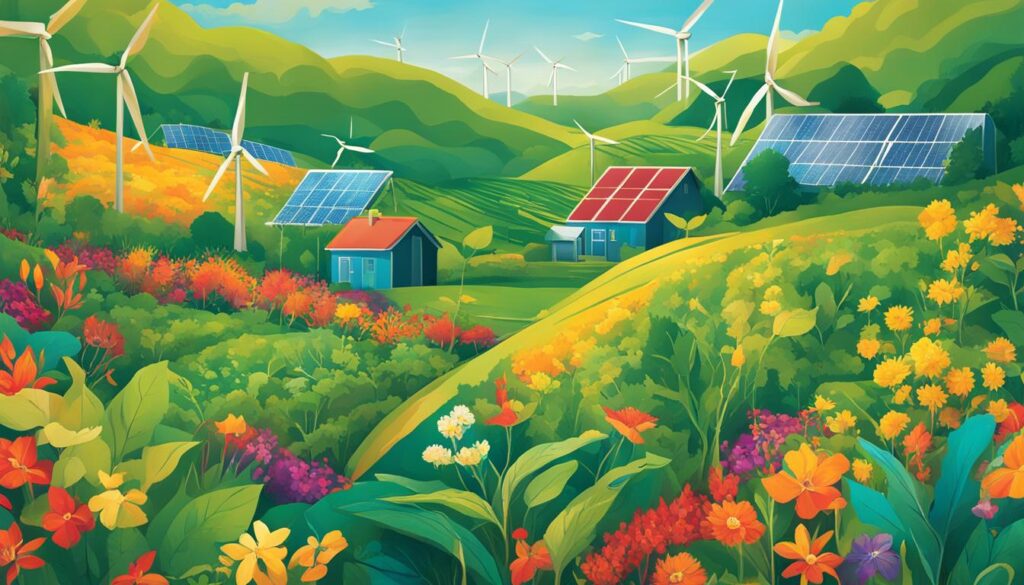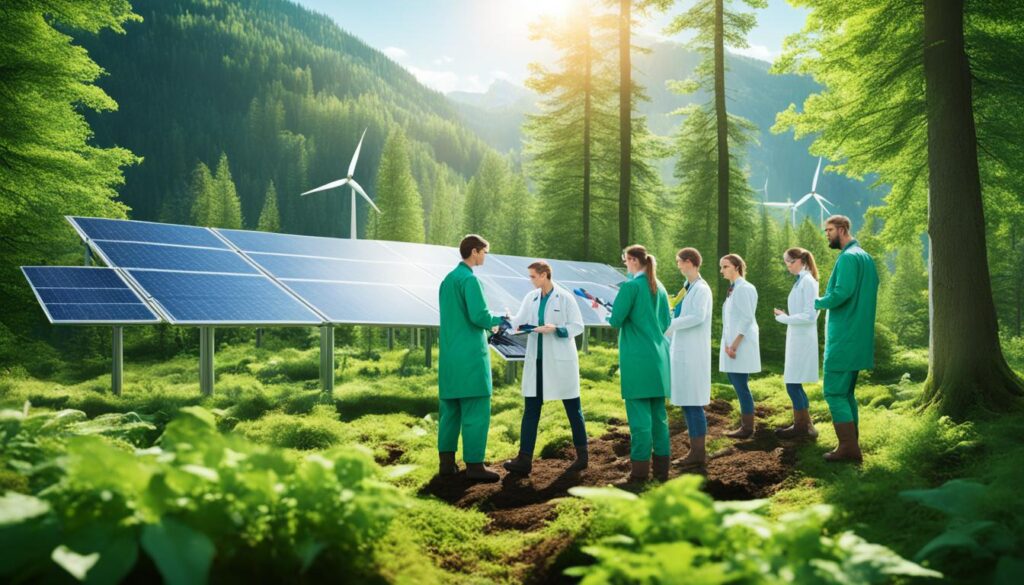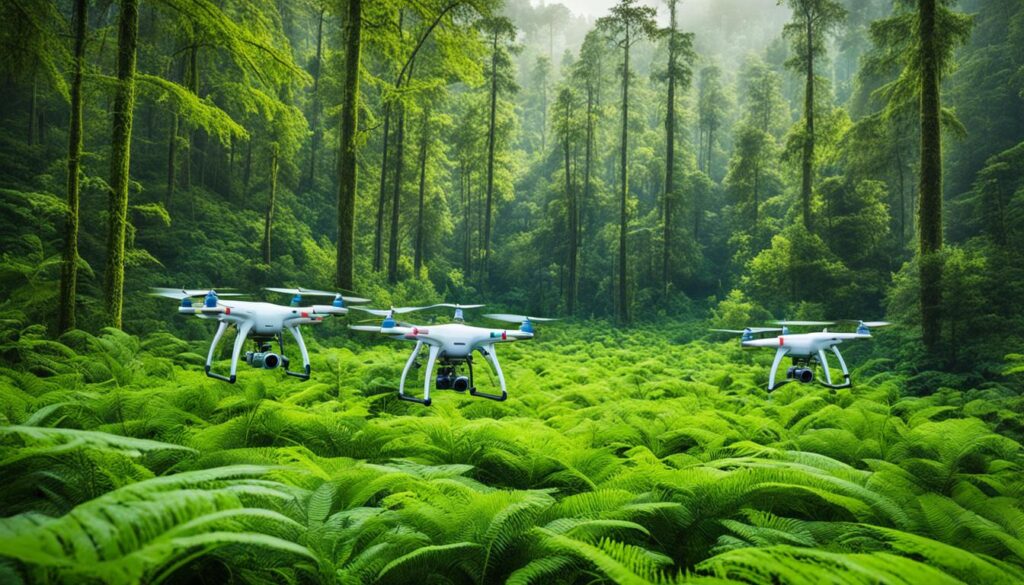Environmental science is an interdisciplinary field that seeks to understand, analyze and mitigate environmental challenges. With increasing concerns about climate change, sustainability efforts have become more vital than ever. Fortunately, environmental science offers a range of eco-friendly initiatives that are being adopted globally to combat climate change. In this article, we will explore the various scientific initiatives and sustainability efforts that environmental science has contributed to, and showcase their role in creating a greener and more sustainable future.
Understanding Environmental Science
In the simplest of terms, environmental science is the study of the interaction between natural systems and human activities, with the goal of understanding and addressing environmental challenges. This multidisciplinary field combines expertise from a range of scientific disciplines, such as biology, geology, chemistry, physics, and ecology, to develop innovative strategies that promote environmental sustainability.
Through the lens of environmental science, we are able to identify the root causes of environmental problems, such as pollution, climate change, and depletion of natural resources. By understanding the interplay between ecological and socio-economic systems, we can begin to develop effective solutions that mitigate the impact of human activities on the environment.


“Environmental science is not just a collection of isolated facts and figures; it is a way of thinking and questioning the world around us.”
Climate Change: The Urgent Challenge
Climate change is one of the most pressing challenges the world faces today. The effects of global warming are felt in every corner of the planet, from rising sea levels to extreme weather events, threatening the natural world and human civilization as we know it.
However, the field of environmental science is at the forefront in developing innovative solutions to mitigate the impact of climate change and combat its root causes. Researchers are exploring various strategies to reduce greenhouse gas emissions, including the development of renewable energy sources, carbon capture and storage, and the promotion of sustainable agriculture and forestry practices.
Moreover, education and public awareness campaigns are crucial to encourage individuals and corporations to adopt eco-friendly habits and reduce their carbon footprint. Environmental science is essential in developing a clear understanding of the implications of climate change, both in the present and future, and in identifying and implementing solutions to combat it.


The Impacts of Climate Change
| Impact | Description |
|---|---|
| Rising sea levels | Melting glaciers and ice sheets are causing sea levels to rise, leading to flooding and erosion of coastal areas. |
| Extreme weather events | Climate change is causing more frequent and severe hurricanes, wildfires, droughts, and heatwaves, leading to loss of life, property, and crops. |
| Ecological disruptions | Changing temperatures and rainfall patterns are disrupting ecosystems and affecting the distribution and survival of plant and animal species. |
| Public health risks | Climate change is exacerbating air pollution, increasing the spread of infectious diseases, and affecting nutrition and mental health. |
As the impacts of climate change become more evident, the need for urgent action grows. With the expertise and innovation of the field of environmental science, there is hope for a more sustainable and resilient future.
Sustainable Innovations for a Greener World
Environmental science has led to many innovative initiatives that promote sustainability and eco-friendliness. Here are some of the most promising and cutting-edge sustainable innovations:
| Innovation | Description |
|---|---|
| Green energy | Renewable energy has emerged as a potential alternative to fossil fuels with advancements in technology. Solar and wind power, for instance, have become increasingly efficient, environmentally friendly, and cost-effective. |
| Green buildings | Environmentally friendly designs, construction materials, and technologies contribute to reduced energy consumption, sustainable water use, and better air quality. Furthermore, green roofs and urban gardens have emerged as innovative methods for reducing urban heat island effects and improving biodiversity. |
| Clean transportation | Electric cars and trains, as well as alternative fuels such as hydrogen and biofuels, have drastically reduced greenhouse gas emissions. Besides, biking and walking friendly cities have reduced carbon emissions and pollution levels while also increasing physical activity and mental health. |
| Circular economy | The circular economy encourages sustainable production, processing, distribution and disposal of materials. This approach essentially eliminates waste, minimizes environmental harm, and creates long-term economic and social benefits. |
As we move towards a greener and more sustainable future, innovations in sustainability efforts and environmental science will lead the way. Together with individuals, communities, and private and public sectors, we can all do our part in creating a more sustainable and eco-friendly world.


Conservation and Restoration of Ecological Systems
The preservation of ecological systems is crucial for the long-term health of our planet. Environmental science plays a significant role in developing strategies for conservation and restoration efforts, ensuring that we protect and nourish these ecosystems for future generations.
One of the most important eco-friendly initiatives for ecological preservation is the restoration of degraded lands. Restoring degraded lands can improve soil quality, increase biodiversity, and promote carbon sequestration, all of which contribute to mitigating the effects of climate change. These efforts are being undertaken around the globe, including in the United States, where the U.S. Department of Agriculture is leading an initiative to restore 1 million acres of degraded land by 2022.
“”We have an enormous opportunity in the next five years not only to protect lands but also to restore some of the world’s most degraded land. It’s important to give new life to these landscapes so that they can sustain future generations of farmers, ranchers, wildlife, and rural communities,” said Agriculture Secretary Tom Vilsack in a statement.


Another critical conservation initiative is the protection of biodiversity. Ecosystems with diverse plant and animal species are more resilient to climate change and other environmental challenges. Environmental science organizations such as The Nature Conservancy protect biodiversity through initiatives such as the conservation of coral reefs, which are vital marine ecosystems and support ecological and economic well-being around the world.
“The oceans cover two-thirds of our planet, and they are in peril. From acidification to overfishing, from pollution to coral bleaching, the challenges facing marine ecosystems can seem overwhelming. But The Nature Conservancy is using a science-based approach to help protect the world’s oceans and the coral reefs that inhabit them,” says Mark Tercek, former CEO of The Nature Conservancy.
Through conservation and restoration efforts, environmental science is providing solutions to some of the most pressing environmental challenges of our time. By preserving and restoring ecological systems, we can create a more sustainable future for generations to come.
Future Prospects: Advancing Environmental Science
The field of environmental science is constantly evolving, with new challenges emerging as we progress towards a sustainable future. As such, it is critical that we continue to advance research and technology to combat these challenges.
One area of potential lies in the development of new, eco-friendly materials that can replace harmful and unsustainable alternatives. For example, researchers are exploring plant-based alternatives to plastic, which could significantly reduce environmental damage caused by the disposal of plastic waste.
Furthermore, environmental science can play a crucial role in mitigating the impact of natural disasters, such as hurricanes and wildfires, through the development of resilient infrastructure and improved disaster response systems.
As we continue to combat climate change, it is important that we implement sustainable practices in all areas of society, from agriculture and transportation to energy production and urban planning. Researchers and scientists in environmental science can work alongside policymakers and industry leaders to develop innovative solutions that reduce our carbon footprint and promote long-term sustainability.
Advancements in technology, such as artificial intelligence and machine learning, can also be utilized to improve our understanding of complex environmental systems and facilitate more effective decision-making.
By advancing environmental science, we can develop a deeper understanding of our planet and the impact of human activity upon it, and work towards a more sustainable future for generations to come.
Conclusion
In conclusion, environmental science plays a critical role in addressing the various challenges posed by climate change and developing innovative solutions for a sustainable future. From sustainable innovations to conservation efforts, environmental science has contributed immensely to creating a greener world.
It is imperative to prioritize ongoing research and advancements in environmental science to tackle emerging environmental challenges. By doing so, we can mitigate the impact of climate change and safeguard our planet’s ecological systems for future generations.
In summary, environmental science is an essential field of study and action, and we must continue to support and promote sustainability efforts for a better tomorrow.
